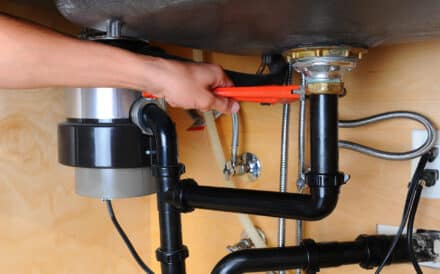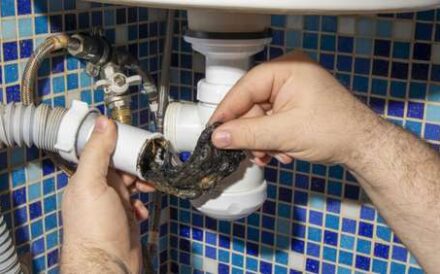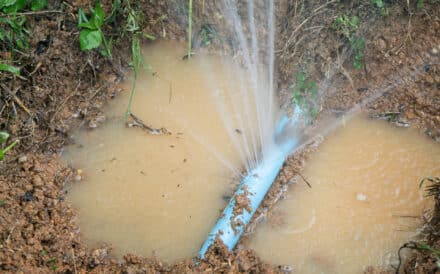DIY Methods for Unclogging a Kitchen Sink: A Comprehensive Guide
A clogged kitchen sink can be a nuisance, but with the right techniques, you can restore its functionality and avoid the need for professional assistance.
In this blog post, we’ll share a range of DIY methods for unclogging a kitchen sink. Check out our accompanying video, “How to Unclog Your Kitchen Sink,” for a visual demonstration.
Understanding Common Causes of Kitchen Sink Clogs
A kitchen sink can become clogged due to various factors. Common culprits include grease, food particles, soap residue, and mineral deposits. Regular maintenance and proactive measures can help prevent clogs from occurring. Here are a few tips to minimize clogging risks:
1. Avoid pouring grease or oil down the drain
Grease and oil can solidify and accumulate in the pipes, leading to blockages. Instead, collect grease in a separate container and dispose of it properly.
2. Use a sink strainer to catch food debris
Install a sink strainer or screen over the drain to catch food particles, preventing them from entering the pipes and causing clogs. Clean the strainer regularly to maintain its effectiveness.
3. Run hot water for a few minutes after each use
Flushing the drain with hot water helps prevent grease buildup and clears away any residual debris. This simple practice can go a long way in maintaining a clear and functional drain.
Method 1: Using a Plunger
A plunger is a simple yet effective tool for unclogging a kitchen sink. Follow these steps to use a plunger correctly:
- Fill the sink partially with water to create suction
- Place the plunger over the drain, ensuring a tight seal
- Push the plunger up and down vigorously for about 20-30 seconds
- Remove the plunger and check if the water drains properly
- Repeat the process if necessary
Remember to take safety precautions while plunging. For instance, if you have a double sink, seal the other drain opening with a wet cloth to prevent air from escaping.
Method 2: Utilizing a Drain Snake
A drain snake, also known as a plumber’s snake or auger, is a flexible tool used to dislodge clogs. Here’s how you can use a drain snake to clear a kitchen sink clog:
- Insert the snake into the drain opening and slowly feed it through the pipe
- Rotate the snake clockwise or use the handle to maneuver it further into the pipe
- If you encounter further resistance, continue pushing and rotating the snake
- Once the clog is dislodged, slowly pull out the snake while continuing to rotate it
- Run hot water to flush away any remaining debris
After using a drain snake, clean it thoroughly and sanitize it before storing it away. It’s important to maintain the snake in a clean and hygienic condition for future use.
Method 3: Baking Soda and Vinegar Combination
The combination of baking soda and vinegar can help dissolve minor clogs and remove odors from the drain. Follow these steps to utilize this DIY solution:
- Pour a pot of boiling water down the drain to loosen the clog
- Sprinkle half a cup of baking soda into the drain
- Pour a mixture of one cup vinegar and one cup hot water into the drain
- Cover the drain opening with a drain plug or a cloth and let the mixture sit for about 15-20 minutes
- Flush the drain with hot water to remove any remaining debris
For enhanced effectiveness, consider adding a few tablespoons of lemon juice or a sprinkle of salt to the mixture. Lemon juice provides additional cleaning power, while salt acts as an abrasive to help dislodge stubborn debris.
When to Seek Professional Help
While the DIY methods mentioned above can resolve many kitchen sink clogs, there are instances where professional assistance is necessary. Contact a plumbing professional if:
- The clog persists despite multiple attempts: If your efforts to unclog the sink are unsuccessful, it’s best to seek professional help. They have the expertise and specialized equipment to handle more complex clogs.
- There is a foul odor coming from the drain: Persistent odors may indicate a deeper clog or a problem within the plumbing system that requires professional attention.
- The clog affects multiple drains in your home: If multiple drains in your house are affected simultaneously, it could be a sign of a larger issue in the main sewer line. Professional plumbers can identify and resolve such problems.
- Your plumbing system is old or prone to frequent clogs: Aging pipes or recurring clogs may require a professional assessment to address underlying issues and provide long-term solutions.
Our expert plumbers at Silver State Plumbing are readily available to assist you with any complex or stubborn clogs. We have the expertise and specialized equipment to identify and resolve even the most challenging plumbing issues.
Preventive Measures for Avoiding Future Clogs
Taking preventive measures can help you avoid future kitchen sink clogs. Here are some practical tips to keep your drain clear and functioning properly:
- Install a sink strainer to catch food particles: A sink strainer or screen placed over the drain prevents food debris from entering the pipes, reducing the likelihood of clogs. Clean the strainer regularly to maintain its effectiveness.
- Avoid pouring fats, oils, and grease down the sink.
- Regularly clean your sink and drain using a mixture of hot water and dish soap: Routinely clean your sink by scrubbing it with hot water and dish soap. This will help remove any buildup of grease, soap residue, and food particles that could potentially lead to clogs.
- Once a month, pour a cup of baking soda followed by a cup of vinegar down the drain to keep it fresh and clear: Using the baking soda and vinegar solution as a monthly maintenance method can help prevent the accumulation of minor clogs and eliminate any unpleasant odors in the drain.
- Be cautious with what you put down the drain: Avoid disposing of non-food items, coffee grounds, eggshells, or fibrous materials like vegetable peels down the sink. These items can easily cause blockages and damage to your plumbing system.
- Use enzyme-based drain cleaners: Enzyme-based drain cleaners are a more environmentally friendly option compared to harsh chemical cleaners. They contain bacteria that can break down organic materials, helping to prevent clogs and maintain a clear drain.
- Consider regular professional plumbing maintenance: Schedule periodic inspections and maintenance with a professional plumber. They can identify and address any potential issues before they turn into major problems, saving you time and money in the long run.
Trust Silver State Plumbing for Reliable Plumbing Solutions
Dealing with a clogged kitchen sink doesn’t always require professional intervention. By following the DIY methods outlined in this guide, such as using a plunger, drain snake, or a combination of baking soda and vinegar, you can often clear the clog and restore the functionality of your sink.
However, if the clog persists or you encounter more complex plumbing issues, don’t hesitate to reach out to the expert plumbers at Silver State Plumbing. We are dedicated to providing top-notch service and ensuring your plumbing system functions smoothly.




